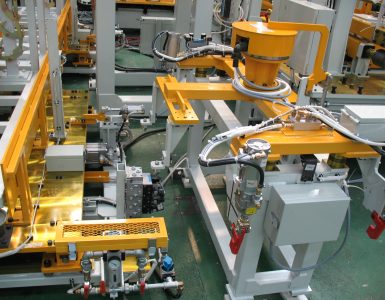Arizona continues to gain national attention for its aggressive moves to be the landing spot for tech innovation. Not only are big name companies looking to expand their businesses here, such as Amazon and GEICO, but the state is cultivating an environment where new companies can build from the ground up.
This is evident in the state’s university system, with new ventures sprouting up in places like Tempe, Phoenix and Tucson, where a startup culture is picking up steam. Efforts like Startup Tucson, a local non-profit educational organization, are also helping to boost startups and entrepreneurship in the area.
Startup Tucson is now connecting with the Tucson Metro Chamber to tout a new partnership to further the spirit of innovation and help build on ideas by tomorrow’s leaders in tech.
The partnership between Startup Tucson and the Chamber features opportunities for members to gain access to mentorship and resources like health care plans. The two entities tested the idea for a partnership out last year by helping out a local startup, SGNT Inc., a company that focuses on developing new technology around current radio-frequency ID tags. That venture just opened doors to a new headquarters in downtown Tucson and is looking to continue its research. SGNT monitors the security and authenticity of goods with radio-frequency.
Startup Tucson focuses on helping budding entrepreneurs through events and resources, such as mentorship. It also helps startups put together management teams to help develop business plans, a critical portion of a startup’s early stages.
For the Chamber, it’s an effort to help expand local businesses and provide an opportunity to build something from scratch while connecting startups to the broader business community.
“With the University of Arizona as a driving force in research and innovation, Tucson is primed as a community for startups and entrepreneurs,” Amber Smith, CEO of the Tucson Metro Chamber, said. “With the work that Startup Tucson is doing…we are set to rise to a national level of recognition.”
Arizona, more broadly, is taking steps to build on its startup culture, especially in the tech space. The state’s tax credit for angel investments, for instance, has already shown progress in developing new companies here. The Angel Investor Tax Program, which saw a financial revamping in 2017 under House Bill 2191, has resulted in robust business and job growth as well as an economic impact of more than $1 billion.
What’s more, the Tucson region continues to be a hotbed for innovation and tech expansion. This is true in the expanding Tech Parks Arizona initiative in partnership with the University of Arizona. The program, which acts as an incubator for tech startups, has created more than 10,000 jobs in the region and contributed just under $2 billion in economic impact.
According to Smith, the goal of the partnership is to “grow Tucson to be an extremely competitive, productive environment for startup companies by fostering an ecosystem that provides the necessary resources and options necessary to thrive.”















Add comment